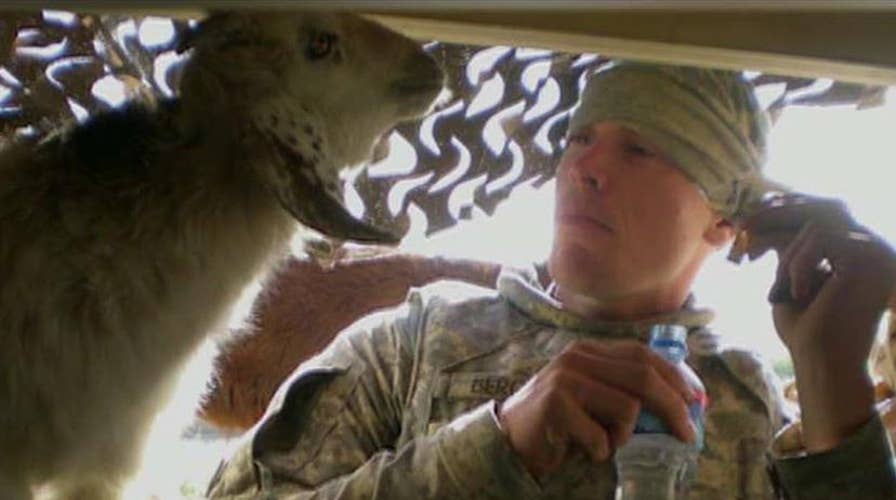Army: Bergdahl had mental illness when he left post
Catherine Herridge reports from Washington, D.C.
Investigators concluded Army Sgt. Bowe Bergdahl had a psychiatric disorder when he walked away from his Afghanistan post in 2009, according to documents made public late Wednesday.
A document from July 2015 shows that an Army Sanity Board Evaluation determined that Bergdahl suffered from schizotypal personality disorder when he left the post. A Mayo Clinic website says people with the disorder have trouble interpreting social cues and can develop significant distrust of others.
Attorneys for Bergdahl, who faces charges of desertion and misbehavior before the enemy, acknowledged releasing the documents in the hope of counteracting negative publicity over the case.
"The more Americans know about this case, the better," attorney Eugene Fidell said in an email to the Associated Press. There was no immediate comment from the Army about the newly released documents.
Bergdahl appeared relaxed in photos he gave to a platoon mate five days before walking off the post. The pictures show him posing with a goat and enjoying camaraderie with his platoon mates, as well as an out-of-focus selfie.
He was held for five years by the Taliban and their allies before being released in May 2014 as part of a swap involving five Guantanamo Bay detainees, prompting criticism from some in Congress that the move threatened national security.
Bergdahl told a general who investigated the case that he hoped to cause an alarm by leaving his post, then walk to a larger base in Afghanistan so he could have an audience with a top commander to draw attention to what he saw as bad decisions by officers above him.
"So, the idea was to -- it was-- literally, it was a sacrificial -- it was a self-sacrifice thing," Bergdahl said, according to the transcript of a 2014 interview with Maj. Gen. Kenneth Dahl.
In the interview, Bergdahl expressed misgivings about how he and other soldiers were sent to help retrieve a disabled armored vehicle before encountering explosives and enemy fire that turned a six-hour mission into one lasting several days. None of the men was killed, but Bergdahl said an officer complained they were unshaven upon their return to base.
He said he began to worry that if he didn't say anything, a future bad order could get someone in his platoon killed.
He described coming up with a plan to leave the observation post his platoon was manning: "The only thing that I could see was, I needed to get somebody's attention."
He ruled out going to the media and instead decided to trigger an alarm by sneaking off and then walking to a larger base nearby.
He described his thought process, referring to himself in the third-person: "That guy disappears. No one knows what happened to him. That call goes out. It hits every command. Everybody goes, what has happened?"
Within a couple of days, he planned to show up at the base: "the Soldier shows up ... People recognize him. They ID him. They go, 'What did you just do?' And that Soldier says, 'I am not saying anything about what I did until I am talking to a general."'
Instead, he wound up in enemy captivity.
Bergdahl's military trial had been tentatively scheduled to begin over the summer, but it has been delayed by disagreements over access to classified materials.
Fox News' Catherine Herridge and The Associated Press contributed to this report.


